“Romanticizing the version of them that was at the beginning of the relationship can tend to get you off kilter, so you don’t know who you’re really dealing with. But when you’ve had that unsettling feeling in your stomach or in your heart, trust it.”
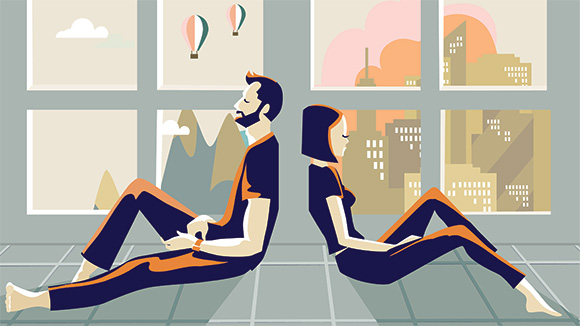
Shutterstock
Domestic Violence comes in various forms, and it can oftentimes be covert and underlying. It doesn’t always have to physically touch you to leave a mark or have an effect. The National Domestic Violence Hotline reports that almost half of all women (48.4%) and half of all men (48.8%) have experienced psychological aggression by an intimate partner in their lifetime.
Unfortunately, we all know someone who has experienced Domestic Violence, which is the theme for this year - #EveryOneKnowsSomeone. Domestic Violence takes place in various forms. While physical is what is most known, domestic violence can be mental, emotional, and even financial. Raising awareness on DV is important, as many survivors feel alone, however, the more we discuss DV and shed light on the subject, the more its survivors can find community and begin healing. My goal as a Director of Student Equity and Title IX is to continue to amplify the need of creating a college campus that is free of gender-based violence and create spaces for student healing.
- Leighia Fleming, Coastline College Director of Student Equity & Title IX
October is Domestic Violence Awareness Month, and I feel that one of the best ways to bring awareness to an issue is by listening intently, with open hearts and open minds, to the personal stories of others. For this week’s blog, I interviewed Brianna, who shared her experience with understanding narcissistic abuse, insights into early signs and red flags, her journey to healing, and wisdom to those who may be going through a similar situation.
Title IX Resources @ Coastline
Content Warning: In this blog, domestic violence, and narcissistic abuse are discussed. Before reading, please ensure you adequately prepare and protect yourself against anything that may be distressing or harmful to you at this time.
Journey to Understanding Abusive Relationships
"It wasn’t until April 2021 that I started to understand that I was in an abusive relationship,” Brianna says. Back in April 2019, she’d discovered that there had been several instances of infidelity within her marriage, and though they’d gone to a pastor who told them they had done all the right things, and after two sessions, said they didn’t need to return, she still felt that something was missing.
“I wanted to continue to heal and grow.” She says. “And at this point, he had decided that he didn’t want to.” From that point, she decided to start seeing a therapist, whom she hadn’t known was previously an advocate therapist at a domestic violence shelter for five years. After some time, she wanted her partner to come to one of her sessions to see how much she’d grown—she’d originally started going to therapy for him—but it didn’t go how she thought it would.
“It backfired on me.” She says. “He had said that I said a lot of things that weren’t honoring him, or that we hadn’t spoken about.”
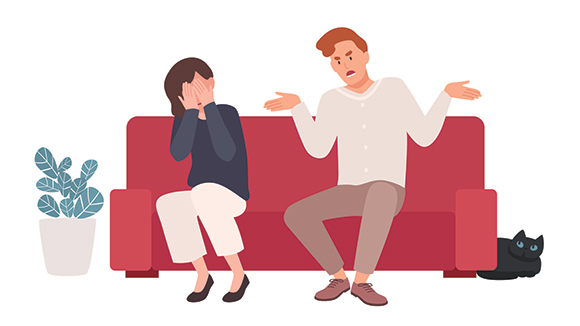
Shutterstock
In her next session alone, her therapist told her she had to inform of something she wasn’t going to want to hear. “She said, ‘Have you ever heard of domestic violence?” and I said absolutely not. This is not what this is. My husband loves me. He cares about me. He supports me. He’s never laid a finger on me, absolutely not. She said, “Bri, not all abuse is physical.”
Her therapist had noticed the difference in their postures as they sat there, her, shaking with her head down, afraid to respond or look up, and him, with his held high and shoulders back, which backed everything Brianna had told her in her sessions without her even having to say a word.
“I still fought for my marriage up until April 2021.” She says. It wasn’t until a friend of hers told her that he was narcissistic, a term she hadn’t heard before. From there, she began researching narcissistic abuse. “It was the first time that I understood what I had been navigating for so long.”
Narcissistic Abuse: A type of emotional abuse that comes from someone with narcissistic personality disorder.
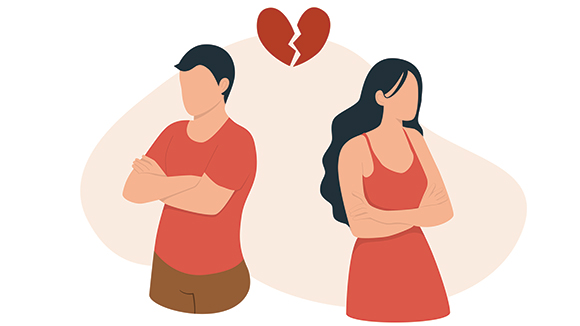
Shutterstock
Red Flags/ Warning Signs
In hindsight, there were early signs, she says. Anything she would say about herself in confidence, he would chop it down, and during disagreements, he would downplay her opinions. He lost friendships if they didn’t agree with him, wouldn’t take personal accountability, and wasn’t fully honest about run-ins with the law.
At the beginning of their relationship, she remembers not fully liking him. “I was an anxious-avoidant attachment style. I had this fear of abandonment, and this was the first time I had ever fully been pursued by somebody.”
She started to pull away as she felt unsure about the relationship until she received a call from him with an ultimatum, which led her to decide to be with him. “It was kind of like I threw myself into it because I was given an ultimatum, and I was so afraid of being abandoned.”
Signs of Narcissistic Abuse include:
Effect on Familial Relationships
Her relationship with her family changed drastically from this experience. “If I’m being very honest, from the very beginning, a lot of my family didn’t like him. They saw things that I wasn’t willing to see from the beginning. They felt that he was controlling in his demeanor, and my relationships with my family got very isolated.”
He would tell her that her family was toxic, even having a falling out with her mother, and as she started to believe this herself, she turned to her partner and his family for solace.
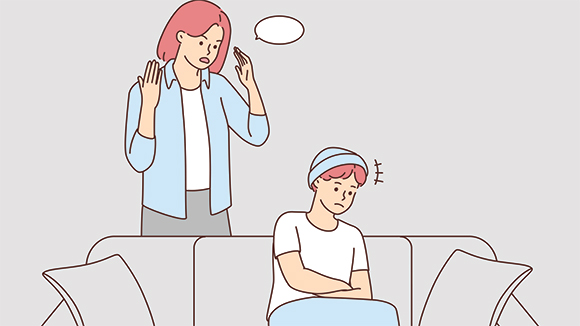
Shutterstock
Healing Journey
Just as abuse has various forms, the end of abusive relationships doesn’t look one way for everyone. “Oftentimes, I get frustrated because I wish I had the story of a woman who found courage, found her worth, and left. But it was the other way around. I was left.” Though it was painful for her to think of things she could’ve done to save her marriage or find someone to help her get her marriage and life back, she credits her strong faith as what helped her get out of the abusive situation and through the devastation.
“There were a few quotes, but one in particular was even when I can’t see God’s hand, I could trust his heart. Whatever was happening—it didn’t feel good, but it was for my eventual good.”
She also credits narcissistic abuse and domestic violence resources as crucial in her healing. “Talking to women who understand my story, because it’s such a complex thing, and it’s not just calling somebody narcissistic. It’s not just a word of vanity. There’s so much that encompasses narcissism, and in particular, my situation, covert narcissism, that I really felt seen, and I felt heard.”
Mental Health Services @ Coastline
Trusting Yourself After Abuse
Many people struggle with trusting themselves after abuse and for Brianna, she cites it, along with coming to terms with all she’d experienced, as one of the hardest realities. “I felt crazy,” she says. “I felt like I couldn’t trust myself because if I truly believed that this was a very healthy and life-giving relationship, and I chose this for myself, could I be capable of choosing healthy ever?”
She started to question herself, wondering if she was the manipulative one, the cause of the chaos and drama. Even when her partner had decided to begin a relationship during their marriage, she’d thought she had pushed him away and was the reason for the infidelity.
“That was the hardest thing—gaslighting myself. Like, maybe I am the problem and I’ve made this a bigger situation than it needs to be. The rebuilding of the self-trust started with loving myself and loving back to health the part of me that chose him, and the brokenness that came with it.” She says it wasn’t until she started looking at herself in the mirror, being intentional about what she spoke to herself, and believing that she was capable of being healthy and choosing wisely that she felt she could trust herself.
“Also, having a good group of women saying, this is not you, this is what happened, and we’re not going to allow you to not trust yourself.’ I think was exactly what I needed.”
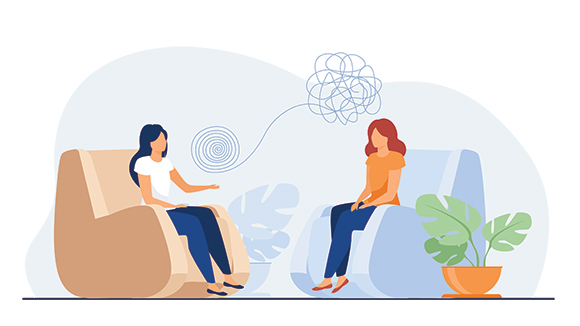
Shutterstock
Moving Forward
Therapy, along with the support she received from her community were the most helpful and meaningful throughout her healing process. “When people were just like, ‘I hear you and I’m angered with you, and I feel with you, and I agree with you.’ I didn’t need people crying—if they were there and I shared it great—but if they were just there to feel with me, acknowledge me, and say ‘I hear you, that was not ok.’ That was the most meaningful for me. To honor my experience so I didn’t feel crazy.”
However, she did experience things that were unhelpful to her healing, which she says has to do with being careful with who you share information with during such a crucial time. When word got around to his family that he was abusive, they began to turn on her and thought she was lying about the abuse. “I think that most unhelpful to my healing process because I was barely trying to understand that I was, in fact, in an abusive marriage.” She says. “To hear those comments, it was like man, maybe I’m wrong.”
In the aftermath, she took care of herself through a lot of therapy, solo dates, journaling, and prayer. “A lot of just throwing myself into discomfort and not running away from the feeling of pain and devastation but leaning into it and looking at it as a moment of growth and learning.”
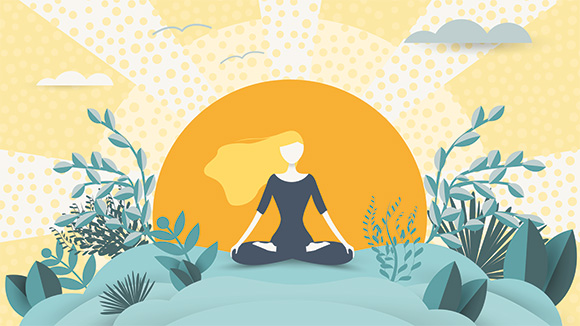
Shutterstock
Advice to Those in a Similar Situation
To anyone in a similar situation, Briana’s advice is to trust your gut when uneasiness starts to creep in. “When they show you who they are, believe them.” She emphasizes. “Romanticizing the version of them that was at the beginning of the relationship can tend to get you off kilter, so you don’t know who you’re really dealing with. But when you’ve had that unsettling feeling in your stomach or in your heart, trust it. That’s your intuition telling you to trust your gut, by all means. Because ten times out of ten, your intuition is leading you right.”
Closing
There are multiple individuals who share the same experience or something similar but don’t feel that they have a voice or place to speak up. By highlighting these stories, and giving their voices a place to feel heard, understood, and acknowledged, we can bring awareness, offer support, and have empathetic conversations moving forward.
If you are in an unsafe situation, please refer to the resources below.
Resources
Coastline College offers resources both on campus and through our community partners.
Blog Updated October 27, 2023: Added quotation from Leighia Fleming, Director of Student Equity & Title IX at Coastline College